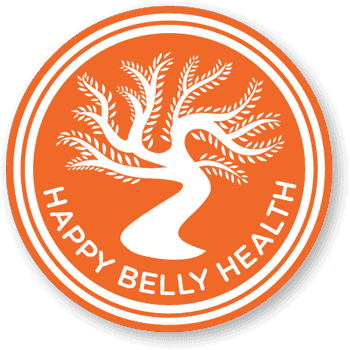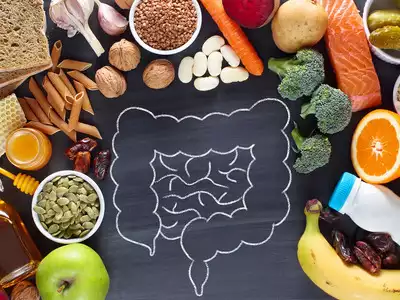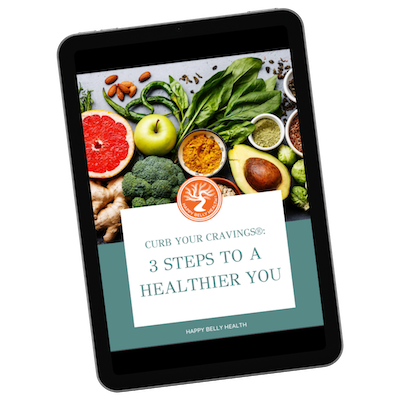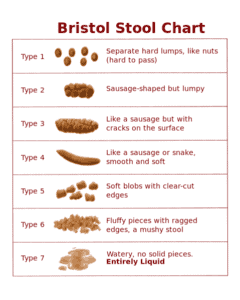Let’s dive into a topic that almost no one talks about, but everyone thinks about and looks at: Our poop.
After our fourth birthday, very few of us keep sharing details of our toilet trips with friends and family. But as it turns out, the status of your bowel movements is a powerful reflection of your overall health.
Also read digestion health resources.
As a nutritionist, I ask everyone about their bowel movements. Over the years, this means I have collected a rather amusing bunch of stories. Most typical is the exchange I have with first-time clients about BM frequency…
“So, John, let’s talk about your bowel movements. Are you regular?”
Silence. Throat clearing. Arms cross over his chest.
“Uhhhmmm. Yeah. I’m regular.”
“So what does that mean exactly, John?”
Silence— more fidgety this time.
“Well, you know— I go when I need to.”
“John, how many days a week do you have a regular, formed, complete bowel movement?”
Finally giving up on avoiding this conversation.
“I think my BM’s are just fine. I very regularly go at least once a week— and sometimes even twice.”
What Even Is “Regular”?
Because we don’t often discuss it, many people don’t fully understand what constitutes “regular” or “healthy” bowel movements.
What to Expect from Healthy Bowel Movements
- Frequency: Ideally, you should have at least one fully formed, complete bowel movement every day. Some people may have 2 or even 3 per day, essentially one for each meal, as seen in studies of many indigenous cultures.
- Ease of Passage: Your stool should be easy to pass (no need for reading material). You shouldn’t have to strain; straining can build pressure in your colon and potentially cause inflammation (diverticulosis).
- Appearance: Healthy stools should be light brown with no noticeable food bits, indicating strong stomach acid and efficient digestion. Most of your stools should be long and log-like, or even shaped like the letter “S,” as Dr. Oz has famously described, not hard little marbles or ping pong balls.
If this description doesn’t match your typical experience, you are not truly “regular.” Relying on over-the-counter medications or fiber supplements every day to achieve these results means you are better off, but still not regular. You may be normal, but not truly regular.
Constipation in a Nutshell
The average American suffers from chronic constipation. Early humans consumed a high-fiber diet, drank plenty of water, slept well, exercised frequently, lived in a low-toxin environment, maintained healthy intestinal flora, and experienced relatively low stress. In comparison, this sounds like a spa experience.
Here’s constipation in a nutshell:
- Analogy: Not having daily bowel movements is like neglecting to take out the trash when the can is full. Over time, things start to spill over, creating a mess and a foul odor.
- Consequences: Harmful bacteria thrive as stool ferments. Waste products continue to irritate and potentially poison your gut lining. Eventually, your body may begin to reabsorb this waste, essentially reingesting the “kitchen trash.”
The Importance of Regular Bowel Movements
Your stool is the primary exit pathway for waste in your body. This includes not just leftover fiber but also toxins such as:
- Pesticides
- Drugs
- Chemicals
- Plastic
- Heavy Metals
- Damaged Cholesterol
- Excess Estrogen
Maintaining regular bowel movements is crucial for overall health and well-being.
Five Steps to Get Your Bowels Moving and 1 trick to help in a “bind”
1. Take Magnesium
- Importance: Magnesium is often more effective than typical solutions like water and fiber. Many Americans are deficient in magnesium due to over-farming and low magnesium content in modern foods.
- Dosage: Try 400-800 mg of magnesium citrate each evening after dinner. Magnesium promotes natural bowel movements through peristalsis, the wave-like muscle movement in the GI tract.
- Alternative: If you prefer not to take pills, use magnesium powder that dissolves in hot water (e.g., Natural Calm). This creates a relaxing warm drink before bed.
- Note: Excess magnesium might cause loose stools or diarrhea. If this happens, reduce the dose.
2. Take a Daily Probiotic Supplement
- Purpose: Beneficial bacteria in probiotics help calm inflammation and improve digestion.
- Type: Choose a multi-strain probiotic with a significant percentage of Bifidobacterium units (ideally ½ or more). Bifidobacteria are crucial for the large intestines, where stool formation occurs. Check-out our online dispensary for discount rates on your quality supplements.
- Avoid: Probiotics dominated by Lactobacillus, which primarily benefits the small intestines and can worsen constipation.
3. Eat Plenty of Healthy Fats
- Benefits: Healthy fats are essential for good digestion and overall health. They help lubricate your GI tract, aiding in stool movement.
- Sources: Include olive oil, coconut oil, avocados, wild salmon, walnuts, almonds, pumpkin seeds, and eggs in your diet.
- Consideration: If fats cause digestive issues (e.g., gas, floating stools), there may be other underlying GI problems to address.
4. Eat Plant Foods
- Fiber: Real, food-based fiber from fruits, vegetables, nuts, and seeds is crucial for bowel health. However, increase fiber intake gradually to avoid worsening constipation.
- Types of Fiber:
- Soluble Fiber: Helps form stools and is useful for bulking (e.g., rice, oatmeal, apples). Psyllium husks are a good supplement.
- Insoluble Fiber: Promotes stool movement (e.g., leafy greens, vegetables). Flaxseed (especially freshly ground) is an excellent source.
- Soluble Fiber: Helps form stools and is useful for bulking (e.g., rice, oatmeal, apples). Psyllium husks are a good supplement.
- Avoid: “PseudoFiber” products with artificial ingredients (e.g., Metamucil). Read labels carefully.
5. Drink Plenty of Water
- Hydration: Water helps soluble fiber work effectively. Aim to drink water throughout the day, especially right after waking up.
- Tips:
- Sip Water: Use a water bottle with a nipple to encourage more frequent sipping.
- Morning Hydration: Drink a large glass of water in the morning to address dehydration and detoxify.
- Meal Timing: Hydrate between meals but limit water during meals to avoid diluting stomach acid and slowing digestion. Small sips during meals are acceptable for palate cleansing or taking supplements.
6. Try This In an Emergency
When you’re really constipated, whisk ¼ to ½ a cup of extra-virgin olive oil with some lemon or orange juice and chug it first thing in the morning and just before you go to bed.
With these steps, you can effectively address constipation and experience significant relief!
Are you curious? Let’s chat. We would love to hear from you.
If you’re interested in finding out more about health coaching, please use this form and you’ll be prompted to schedule a 15 minute chat. We look forward to supporting you. Happy Belly Health®







